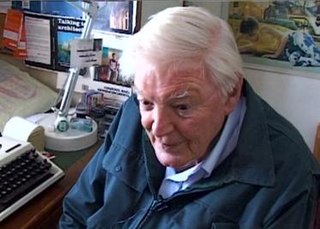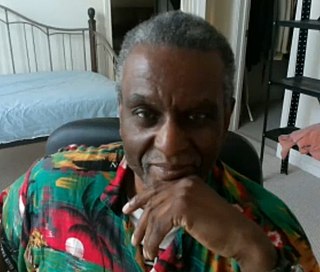A Quote by Noam Chomsky
The first modern propaganda agency was the British Ministry of Information a century ago, which secretly defined its task as "to direct the thought of most of the world" - primarily progressive American intellectuals, who had to be mobilized to come to the aid of Britain during World War I.
Related Quotes
A war film can be propaganda and they're very valuable as propaganda, as we realized in Britain in the Second World War. Film as propaganda is a very valuable tool. It can also demonize, which is the dangerous side of a war film as propaganda. But there are war films that are not propaganda. It's just saying 'This is what it's like.' For 99 percent of us we don't know what it's like. We have no idea. So to reveal that to the audience is powerful.
It is my belief that whereas the twentieth century has been a century of war and untold suffering, the twenty-first century should be one of peace and dialogue. As the continued advances in information technology make our world a truly global village, I believe there will come a time when war and armed conflict will be considered an outdated and obsolete method of settling differences among nations and communities.
David Lloyd George had been to Germany, and been so dazzled by the Führer that he compared him to George Washington. Hitler was a 'born leader', declared the befuddled former British Prime Minister. He wished that Britain had 'a man of his supreme quality at the head of affairs in our country today'. This from the hero of the First World War! The man who had led Britain to victory over the Kaiser!
When I was on an American show in 2015, I tried to talk about the threat Vladimir Putin posed to the free world. The interviewer said, "Wake me up when he takes over Poland." We heard something similar from years ago and we ended up with World War Two. Putin decided to skip Poland and went straight to Wisconsin. Putin is at war, a hybrid war, with the free world. His domestic propaganda is based entirely on a strong man challenging the free world. When the demonstrations around Russia began, the harsh response was because it was more important to show strength.
As long as colonialism was allowed to reign and fester in Africa, it was going to be a source of tension, if not war, as was evidenced by World War I itself, which, among other things, featured Germany on one side of the barricades and Britain, which had come earlier to the table of colonial plunder, on the other.
World War Two was a world war in space. It spread from Europe to Japan, to the Soviet Union, etc. World War Two was quite different from World War One which was geographically limited to Europe. But in the case of the Gulf War, we are dealing with a war which is extremely local in space, but global in time, since it is the first 'live' war.
The twentieth century had dispensed with the formal declaration of war and introduced the fifth column, sabotage, cold war, and war by proxy, but that was only the begining. Summit meetings for disarmament pursued mutual understanding and a balance of power but were also held to learn the strengths and weaknesses of the enemy. The world of the war-or-peace alternative became a world in which war was peace and peace war.
The thing that should most concern us is a shift in American foreign policy. We have had a bipartisan belief in American foreign policy based on the post-World War II institutions that believed in democratic global world, which Russia and the Soviet Union was often seen as hostile to. And most Republicans and Democrats have always basically believed in this world order. Donald Trump and Vladimir Putin and maybe Marine Le Pen do not agree with this basic structure of the world.





































